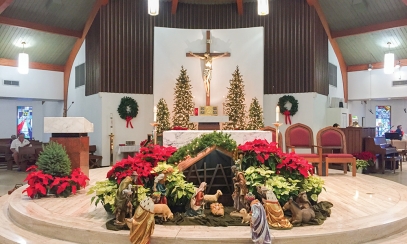
What does the Church teach about swear words?
QUESTION: My 6th grader came home to tell me most kids in her classes at school use bad words. It’s so bad, she has found herself picking up on the bad language, but I’m at a loss trying to explain what the Church says about swearing. What should we know about swearing, and what should we do when people swear around us?
QUESTION: My 6th grader came home to tell me most kids in her classes at school use bad words. It’s so bad, she has found herself picking up on the bad language, but I’m at a loss trying to explain what the Church says about swearing. What should we know about swearing, and what should we do when people swear around us?
December 1, 2021 | St. Paul’s injunction in Ephesians 4:29 is the ideal lesson for Christians about the propriety of speech:
“No foul language should come out of your mouths, but only such as is good for needed edification, that it may impart grace to those who hear."
However, our mass media society has blurred the lines about what is considered “foul language.” And so, many people have developed a habit of using bad words and exercise little deliberation about whether their language promotes the good or is harmful.
In teaching children, we should strive to present an objective standard to what is foul language and what is virtuous language in terms of St. Paul’s standard. Simply put, the Church asks us to consider the fruits of our speech. We should ask: Does what I am saying draw listeners' minds to the higher things or the baser elements of human nature.
There are also many different ways to speak about foul language. For example, we tend to use the words "cursing" and "swearing" interchangeably even though they refer to different vices. Cursing means wishing bad things will occur to the other person, thus, cursing them. On the other hand, swearing refers to bolstering our credibility by making an oath— for example, "I swear to God!” Remember what Jesus said about oaths Jesus said:
“I say to you, do not swear at all…say yes when you mean yes and no when you mean no all else is the work of the evil one."
He means that if you always speak plainly and truthfully, you should not depend on devices such as oaths; instead, our truthfulness should be apparent.
We should also remember the commandment not to use the name of God in vain. Whenever we use the Divine Name, it should be in the context of prayer and praise. We should never utter "Our Heavenly Father,” Jesus Christ our Lord, or the Holy Spirit in a foul expression.
As with all of Catholic Morality, it is best to emphasize the idea of virtue, after which we strive and encourage children to seek forgiveness and absolution when they fail.
Father Joe Waters is Judicial Vicar and Censor Librorum of the Diocese of St. Petersburg.
If you have a question you would like us to consider for this series, email communicate@dosp.org.



